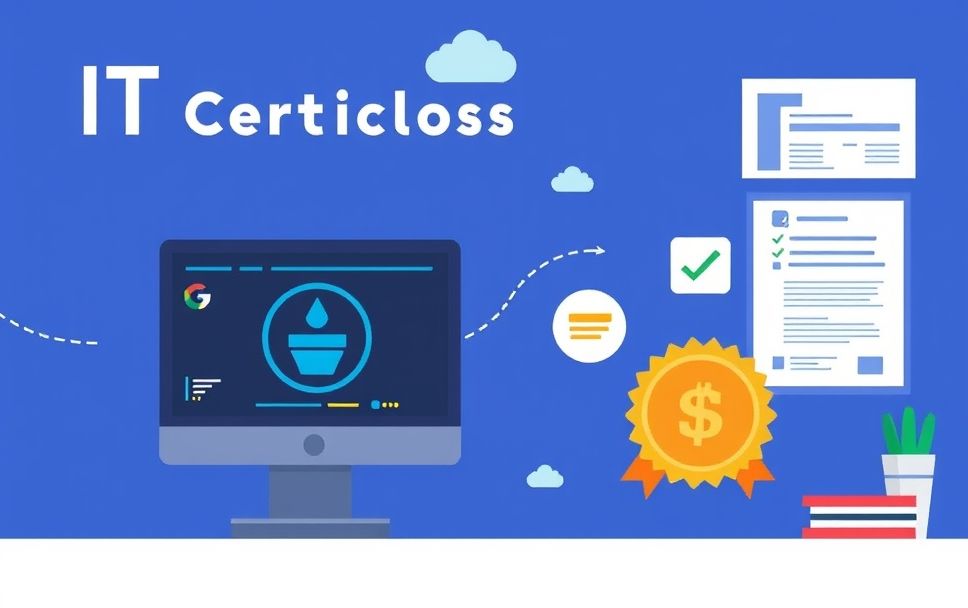Understanding IT Certifications
IT certifications are formal credentials that validate an individual’s skills and knowledge in specific areas of technology. These certifications are typically awarded by recognized organizations or vendors after passing an examination. They serve as a testament to an IT professional’s ability to perform specific tasks and solve problems related to technology and information systems.
The Importance of IT Certifications in Today’s Job Market
With the rapid evolution of technology, IT certifications have become increasingly important for professionals in the field. Here are some key reasons why:
- Career Advancement: Many employers prefer or require candidates to hold relevant IT certifications, making them critical for career progression.
- Skill Validation: Certifications provide concrete proof of your skills, which can help you stand out in a competitive job market.
- Industry Recognition: Earning certifications from reputable organizations can enhance your reputation among peers and employers.
- Networking Opportunities: Many certification programs offer access to professional networks and communities that can lead to job opportunities.
Types of IT Certifications
IT certifications can be categorized into several types based on the area of expertise:
- Vendor-Specific Certifications: These are offered by specific technology companies, such as Microsoft, Cisco, and Amazon. For example, the Microsoft Certified: Azure Fundamentals certification demonstrates knowledge of cloud services and how those services are provided with Microsoft Azure.
- Vendor-Neutral Certifications: Certifications like CompTIA A+ or Network+ are not tied to a specific vendor and validate broad foundational skills across the industry.
- Specialized Certifications: These focus on specific domains, such as cybersecurity (e.g., Certified Information Systems Security Professional – CISSP) or cloud computing (e.g., AWS Certified Solutions Architect).
How to Choose the Right IT Certification
Choosing the right IT certification involves several considerations:
- Career Goals: Identify your career aspirations and choose certifications that align with those goals. For instance, if you want to specialize in cloud architecture, consider certifications from AWS or Google Cloud.
- Current Skills: Assess your existing skills and choose certifications that will help fill knowledge gaps. If you’re a novice, starting with foundational certifications like CompTIA A+ can be beneficial.
- Market Demand: Research the current job market to understand which certifications are in high demand. Websites like LinkedIn can provide insights into trending certifications.
Practical Applications of IT Certifications
IT certifications are not just theoretical; they have practical applications in the workplace:
- Problem-Solving: Certified professionals often have a structured approach to solving complex IT issues, which can lead to more efficient resolutions.
- Project Management: Certifications like Project Management Professional (PMP) or Agile Certified Practitioner (ACP) can help IT professionals manage projects more effectively.
- Security Protocols: Certifications in cybersecurity enable professionals to implement robust security measures, protecting organizations from data breaches and attacks.
How to Prepare for IT Certification Exams
Preparation is key to successfully earning an IT certification. Here are some steps to help you get ready:
- Study Materials: Use official study guides, practice tests, and online courses to prepare. Websites like Coursera and Udemy offer courses specifically designed for certification preparation.
- Join Study Groups: Collaborating with others can enhance your understanding. Look for online forums or local meetups focused on your certification.
- Hands-on Practice: Engage in practical exercises. For example, setting up a virtual lab can help you gain real-world experience related to the certification content.
Related Concepts and Terms
Understanding IT certifications also involves familiarizing yourself with other related concepts:
- Continuing Education: Many certifications require ongoing education to maintain your status, emphasizing the need for continuous learning in IT.
- Skill Gaps: Identifying skill gaps in your knowledge can guide you to pursue relevant certifications.
- Professional Development: Certifications are a crucial component of professional development, helping you stay current in the ever-evolving IT landscape.
Conclusion: The Value of IT Certifications
IT certifications are more than just letters after your name; they represent a commitment to your professional development and a way to validate your skills in an ever-changing industry. By choosing the right certifications, preparing effectively, and applying what you learn, you can significantly enhance your career prospects in the IT field.
Consider which certifications align with your career goals and take actionable steps to pursue them. The investment you make in obtaining these certifications can lead to greater job security, higher salaries, and numerous opportunities for advancement.









